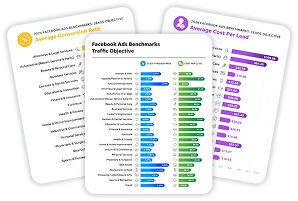
Alexander B. Howard is the Government 2.0 Washington, D.C. Correspondent for O’Reilly Media. Previously, he was the associate editor of SearchCompliance.com at TechTarget. His work there focused on how regulations affect IT operations, including issues of data protection, privacy, security and enterprise IT strategy. Before moving his focus to security and compliance, he was the associate editor of WhatIs.com, an online IT encyclopedia. In that role, he researched and wrote about nearly every aspect of enterprise IT. Alexander graduated from Colby College in 1998 with a bachelor’s degree in biology and sociology. In his spare time, he enjoys running with his greyhound, reading, microblogging, fishing, cycling, gardening, cooking and hiking. Learn more at his blog or follow him on Twitter: @digiphile.
What role does social media play in your job (or career, if you prefer!)? What role does it play in your personal life?
Social media (or collaborative technology, as some now prefer in the enterprise world) is deeply woven into the fabric of both my work and personal life. On the IT journalism side, I use social media to find sources, provide live coverage of events, gauge sentiment, distribute content, track news and fact-check stories. When I’m not focused on work, I use social media to stay in touch with friends, family, former colleagues and classmates, find out what’s happening around whatever city I’m in or check on the status of events or government services. I try to use the various platform to get smarter.
How did you get on so many Twitter lists?
I think that’s a natural extension of gathering some influence, particularly in the technology space. It’s been an organic process. Inclusion on certain Twitter lists by influential people early on also was part of it.
Any tips for getting followers, gaining authority, and generally being interesting on Twitter?
I highly recommend staying away from any services that promise more followers, as Twitter monitors accounts that use them and may suspend or penalize accounts that have done so in the future. One effective method for gaining the followers relevant to a given topic is to follow #hashtags or lists and then @reply to those individuals, retweeting posts that are relevant to your intended audience. Ascribing authority in real-time search is both qualitative and quantitative. The way that Google ranks Tweets, for instance, may be different than whether a given influential writer, politician or technologist will cite or reshare your work.
Of course, getting followers is closely tied to who you are outside of Twitter, too. That’s why filling out the bio, putting your real name in so you’re searchable and linking to an informative landing page will help enormously. So will integrating your account into email, your blog, website, or other social networks.
Being interesting on Twitter isn’t so different from other media or platforms; you just have less space. That forces brevity of thought and wit. Posting pictures or relevant, topical stories is effective. Most people don’t have lives that are inherently interesting, so you’ll need to pick your spots. Stay away from talking about your lunch, unless it’s a dispatch from a foreign country or a special event at an unusual restaurant (add that picture). As with any community, listen first to see what conventions for use are there.
Who or what are your top resources for social media and online marketing information?
I’ve learned a lot, both in writing and by example, from Chris Brogan, Paul Gillin, Andy Carvin, Mark Glaser, Laura Fitton, Clay Shirky, Mathew Ingram, Howard Rheingold, Amber Naslund, Peggy Rouse and many, many others, particularly Andy McAfee for insight about collaborative media within big companies. And I drop by ReadWriteWeb, Mashable, TechCrunch, Hubspot, PBS’s Mediashift and other sites frequently.
How has Twitter changed journalism?
If the pace of online news wasn’t fast before, Twitter stepped it up. There are plenty of reasons why journalists are excited about social media. News now breaks there first and quickly propagates worldwide. There’s now a kind of collective reporting that goes on, as individual journalists establish more facts and add them to blogs or post new stories, which are then shared again. Some people call that “ambient journalism.” And of course as celebrities, politicians and other sorts of professionals have joined, sourcing has changed as well. Editors can geolocate tweets around a breaking news event, like Haiti, pick up tips, and create lists of validated sources. News is increasingly an iterative process, as a writer might pick up a story, write about it, tweet it and then gain more insight, sources, information and reaction from readers. Leah Betancourt has a good post on journalism and Twitter. And ReadWriteWeb has been leveraging Twitter effectively for years now.
And marketing?
There are any number of ways Twitter has changed marketing. I don’t recall people talking about social media marketing much three years ago. Now, major brands like Pepsi are allocating dollars there from traditional broadcast media buys. Marketers have the opportunity to find and engage people who are already expressing interest in a given product or service and engage them. Savvy marketers have figured out how to talk with consumers and buyers, instead of to them. Marketers can use Twitter for sentiment analysis, product feedback, brand awareness or to go direct with news about a product. Good marketing also means that people searching for information about products or services will find it, where ever they look. That includes Google, Facebook, LinkedIn and yes, Twitter.
What’s the future of Twitter?
If I knew, I’d go pitch the New York Times. Seriously, it’s tough to say. IPO? Acquisition by Google or another tech behemoth? Collapse and niche status, like Friendster? I think that last is unlikely. More expansion internationally, more integration into other services.
Will it find a profitable business model in 2010?
Yes; the search deals Twitter signed with Google and Microsoft will be part of that. So will providing additional services to business accounts. Google’s road to profit came through excellent search tied to advertising in those results.
Can it survive?
At this point in 2010, I’d say so, yes. As David Carr, a former skeptic, wrote in the New York Times recently, Twitter will endure. He quoted Steven Johnson, who wrote a seminal piece about Twitter for Time last June: “Twitter is looking more and more like plumbing, and plumbing is eternal.” We’ll see. I certainly agree more with both of them than not.
Is Google evil? Maybe just a little? 😉
That depends on how you define enlightened self interest when it comes to public companies. The recent move by Google regarding China might reverse a compromise made years ago that many felt was a little evil. Google’s importance to the world’s citizens shouldn’t be understated, when it comes to global freedom.
What’s the future of Google?
Should I go pitch the Wall Street Journal on this answer? More growth into the enterprise, more development of mobile advertising, and more digitization and organization of the world’s knowledge. Google has entered more businesses than most people recognize. It won’t be successful in all of them but its influence, resources and innovation are immensely disruptive.
Will it buckle under its own growth?
I doubt it.
How can companies respond to real-time search?
If they haven’t established control of their brand on Twitter, do that. If they have, start sharing relevant resources frequently. Identify influencers and engaged customers, clients and employees. Engage them and reshare their work. Monitor for mentions and be constructively responsive.
How does it complicate SEO, SMO, and brand management?
I don’t think the shift to real-time makes those challenge much more complicated than they were already. Yes, influential individuals and companies will have real-time search boxes for given terms, but the immediacy of those scrolling messages simply heightens the need to listen better, engage and respond. Some companies, like Dell and Zappos, are making some money there. Others are building good will. Public services and utilities are using social media to monitor crises and share information. There, real-time can be quite useful.
I shouldn’t minimize the ways that social media complicates traditional SEO. A blog post or video that quickly gains popularity on social media platforms may receive a flood of traffic and inbound links well in excess of any traditional campaign. As Google’s Social Search experiment rolls out, the way we optimize and share content will change further. Already, we write on title for the search engines and another one for humans. It may not change everything but social search will change online marketing.
What’s the low-hanging fruit in social media optimization (SMO) for a business just beginning to establish a social presence?
Cover the basics. Use Knowem.com or some similar service to secure the name of the business on major social networks. Then shift to listening, to determine where customers or clients are talking about the business. Identify the blogs that cover the industry and track them. Chris Brogan has explained how to grow bigger ears in 10 minutes. Great advice on how to listen there. For businesses strapped for time and staff — a common challenge these days — resharing positive comments from customers will be a major win that’s easily accomplished with a minimum of effort. Establishing a Facebook page will similarly provide a place for customers to express feedback. Just be ready to respond if they’re not happy.
How would you make a business case for social media marketing/SMO?
It’s usually easiest to point to success stories, if pushed. (Making the case for media and journalism is easier.) Here’s a presentation that offers a light-hearted take: Olivier Blanchard Basics Of Social Media ROI. If business owners pose the question, I answer with my own questions: Do you want it to be easy for customers and clients to find you online? Do you want to expand your client base and build on word-of-mouth marketing? Do you want to know how your products or services are being received in the marketplace? do you want to learn where, how and when your customers are using your products or services — with no investment in focus groups or consultancies? None of that will come instantly, but those are all potential gains.
What tools/applications do you use every day to make your job (and life) easier?
I’m part of a group that’s wedded to Microsoft Office for email and document production. I use Xobni to improve Outlook and more than a few macros and templates to speed up Word. We collaborate using WebEx, IM, Skype and Google Docs, too. I use Gmail and Google Reader as hubs for information filtering and sharing. I’m a long-time user of Delicious. For Twitter, I use Tweetdeck and Seesmic on the desktop and Tweetie on my iPhone. Evernote and Etherpad are extremely useful tools, though I don’t use either as much as I might. I invested in a great high-end Logitech webcam that takes good pictures and handles livestreaming through Livestream.com and uStream.com. (I need a new mic, though.) I track live events using Twazzup.com and Tweetgrid.com.
Do you ever experience information overload?
Yes.
How do you deal with it?
I periodically “unwire,” taking hikes, bike rides, going out to dinner, theater or movies, runs with dog or trips to the Smithsonian. That downtime helps me focus, especially when I disappear into a good book. Online, I try to keep focused on what my priorities are for the day, in terms of deliverables. I’ve also been using a tool called “Readability” recently to focus on just the content I want to read online. It’s brilliant, although the stripping of ads may cause some publishers palpitations.
Last question, from a fellow home chef: What’s your favorite thing to cook? Share the recipe if possible!
I have to choose ONE recipe? I’ve been enjoying BBQ the past few years, playing around with smoking pork shoulders and ribs or beer can chickens. My favorite thing to cook tends to be what I can grow, shoot or catch, because of the connection to the origin of the food. I like a good crab boil or my take on grilled striped bass and bluefish. Forced to choose one, it might be mussels Bianco. Chop garlic and onions, saute in olive oil for two minutes in a cast iron skillet at medium heat. Add cleaned mussels and handful of basil or oregano. Toss in the oil. Add a cup of white wine, cover, turn on high heat. After 5 minutes, add chopped tomatoes, cover. After 3 more, check to see if mussels are open. Discard closed mussels. Serve on a trivet with ample fresh bread to dip in the broth, along with the rest of that white wine, preferably chilled. (I like a good Sauvignon Blanc, although Pinot Grigio will work too.) To make it more exotic, add lemongrass when you toss in herbs.
(Read More: How to Measure Social Media ROI)








